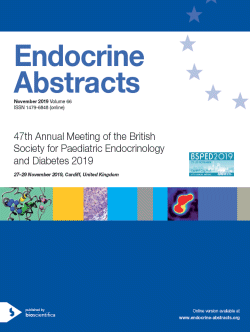Searchable abstracts of presentations at key conferences in endocrinology

47th Meeting of the British Society for Paediatric Endocrinology and Diabetes
Cardiff,
UK
27 Nov 2019 - 29 Nov 2019

BSPED 2019, 27 - 29 November 2019; Cardiff, UK



